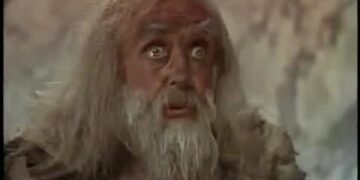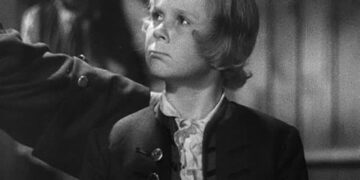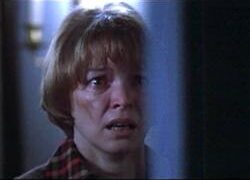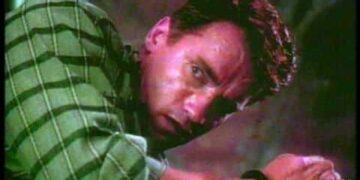Devdas is a timeless Indian tale that has captivated audiences for decades.
The story, written by Sarat Chandra Chattopadhyay, has been adapted into multiple films, with the most popular being the 2002 version directed by Sanjay Leela Bhansali.
In this comprehensive analysis, we will explore the book and movie summary, parent guide, film locations, and more, to provide a deep understanding of this classic work of art.
Sarat Chandra Chattopadhyay: Biography and Works
Sarat Chandra Chattopadhyay was a prominent Bengali novelist and short story writer, born on September 15, 1876, in Devanandapur, Bengal Presidency (now in Bangladesh).
His works primarily dealt with the lives of rural people and the complexities of human relationships, reflecting his deep understanding of the human psyche. He gained fame with his first major work, ‘Srikanta,’ published in 1917.
Chattopadhyay’s writing style is characterized by simplicity, realism, and introspection.
His other notable works include ‘Choritrohin’ (1917), ‘Palli Samaj’ (1916), and ‘Grihadaha’ (1920). However, it was ‘Devdas’ (1917) that brought him immense popularity and became his most iconic work.
Devdas: Book Summary and Analysis
In the book, Devdas and Paro are childhood friends who share a deep bond of love. However, their relationship is strained by societal norms and family politics, as Paro’s family is considered of lower status.
Devdas, unable to cope with the thought of marrying Paro, leaves their village and becomes an alcoholic, seeking solace in the arms of Chandramukhi, a courtesan.
The novel explores the themes of love, loss, and self-destruction, with Devdas’s inability to accept his love for Paro ultimately leading to his demise. Chattopadhyay’s portrayal of the characters is layered and complex, making the reader empathize with their struggles and emotions.
The book also offers an insight into the rigid societal norms of early 20th-century India.
Devdas: Movie Summary and Analysis
Sanjay Leela Bhansali’s 2002 adaptation of Devdas is a visual spectacle that brings the novel to life on the big screen. Starring Shah Rukh Khan as Devdas, Aishwarya Rai as Paro, and Madhuri Dixit as Chandramukhi, the film is a faithful adaptation of the novel, with some creative liberties taken to enhance the cinematic experience.
Bhansali’s Devdas is known for its stunning visuals, elaborate sets, and powerful musical score, which add to the emotional journey of the characters.
The film stays true to the essence of the novel, capturing the intense love and loss experienced by Devdas, Paro, and Chandramukhi. The performances by the lead actors are commendable, with Khan, Rai, and Dixit embodying their respective characters with passion and depth.
Parent Guide: Understanding Devdas for Different Ages
Devdas is a story that can be appreciated by audiences of various ages, but it is essential to understand the themes and content to ensure age-appropriate viewing or reading.
The novel contains themes of love, loss, and self-destruction, as well as alcoholism, which may not be suitable for younger audiences. The film adaptations, especially the 2002 version, also include some mature content, such as alcohol consumption and suggestive scenes.
For younger children, it is recommended that parents read or watch the story with them and have open discussions about the themes and messages.
For teenagers and adults, Devdas can be a powerful exploration of love, societal norms, and personal choices, providing ample opportunities for reflection and discussion.
When and Where: Exploring the Timeline and Film Locations of Devdas
Devdas is set in the early 20th century, reflecting the socio-cultural norms of the time. The novel takes place in rural Bengal, India, while the film adaptations have varied locations depending on the vision of the director.
The 2002 film, for example, was shot in various locations across India, including Mumbai, Kolkata, and Agra, as well as in studios with elaborate sets.
Some iconic locations from the film include the renowned haveli (mansion) in Jaipur used for Paro’s home, the beautiful Sonargaon village in Bangladesh, and the mesmerizing Aishwarya Rai’s dance number ‘Dola Re Dola,’ shot at Film City in Mumbai.
These locations add to the visual appeal and historical authenticity of the story, making it a treat for the eyes and the heart.
Who’s Who: Main Characters and Performances
The main characters in Devdas are as follows:
- Devdas Mukherjee (portrayed by Shah Rukh Khan in the 2002 film) – The titular character, Devdas is a man torn between his love for Paro and the societal norms that keep them apart. His self-destructive tendencies lead him to alcoholism and a tragic end.
- Parvati “Paro” Chakraborty (portrayed by Aishwarya Rai in the 2002 film) – Paro is the childhood love of Devdas, who suffers the consequences of their love being deemed unacceptable by society. She eventually marries a wealthy older man but continues to love Devdas.
- Chandramukhi (portrayed by Madhuri Dixit in the 2002 film) – Chandramukhi is a courtesan who falls in love with Devdas, offering him solace and companionship in his darkest moments. Despite her love for him, she knows that he will never truly be hers.
The performances by the lead actors in the 2002 film are considered some of their best work, with Khan, Rai, and Dixit fully embodying their respective characters and showcasing their emotional depth.
Memorable Quotes from Devdas: Book and Movie
Here are some memorable quotes from both the book and the 2002 film adaptation:
- “Kaun kambakht bardaasht karne ke liye peeta hai? Main toh peeta hoon ke bas saans le sakoon.” (Devdas, 2002 film) – Translation: “Who drinks to tolerate life? I drink just to breathe.”
- “Babuji ne kaha gaon chhod do, sab ne kaha Paro ko chhod do, Paro ne kaha sharab chhod do, aaj tumne keh diya haweli chhod do, ek din aayega jab woh kahega, duniya hi chhod do.” (Devdas, 2002 film) – Translation: “Father asked me to leave the village, everyone asked me to leave Paro, Paro asked me to leave alcohol, today you asked me to leave this mansion, one day it will come when they will say, leave this world.”
- “Love is faith, and faith is forever.” (Devdas, book)
- “Itna pyaar is duniya mein hai, aur bhi hai, lekin usse milne ka raasta nahin hai.” (Devdas, book) – Translation: “There is so much love in this world, and there’s more, but there’s no way to reach it.”
These quotes highlight the deep emotions and themes present in Devdas, making them memorable and impactful.
The Soundtrack: Ismail Darbar, Birju Maharaj, and Monty Sharma’s Contributions
The 2002 Devdas film is known for its enchanting soundtrack, composed by Ismail Darbar, with additional contributions from Birju Maharaj and Monty Sharma.
The music of the film adds to the emotional depth of the story, with songs like “Silsila Ye Chahat Ka,” “Maar Daala,” and “Dola Re Dola” becoming instant classics.
Birju Maharaj, a renowned Indian classical dancer and choreographer, contributed to the film by choreographing the iconic dance number “Kaahe Chhed Mohe,” performed by Madhuri Dixit. Monty Sharma, who later went on to compose music for other Sanjay Leela Bhansali films, assisted Darbar in the background score for Devdas.
The music of Devdas is an essential aspect of the film’s success and continues to be celebrated and enjoyed by audiences today.
Curiosities and Trivia: Behind the Scenes of Devdas
Here are some interesting facts and trivia about the 2002 film adaptation of Devdas:
- The film’s budget was a whopping ₹500 million (approximately $6.6 million), making it one of the most expensive Bollywood films at the time.
- Aishwarya Rai’s green outfit in the song “Dola Re Dola” weighed around 30 kg (66 lbs).
- The film was India’s official entry for the Best Foreign Language Film at the 2003 Academy Awards.
- Devdas won a record 10 Filmfare Awards, including Best Film, Best Director, and Best Actor, among others.
- The film’s famous haveli set took over a year to construct and was later used in other Bollywood films.
These fascinating facts provide a glimpse into the effort and dedication that went into creating the iconic 2002 film adaptation of Devdas.
Dressing Up: Tips for Cosplay and Emulating Devdas Characters
If you’re a fan of Devdas and want to emulate the characters’ looks for cosplay or themed events, here are some tips to help you achieve the perfect look:
- Devdas – Focus on the traditional Indian attire, such as a kurta, dhoti or churidar, and a shawl. Don’t forget to include a bottle or glass prop to represent his alcoholism.
- Paro – Choose a traditional Indian sari or lehenga in vibrant colors, with intricate embroidery and embellishments. Complete the look with traditional jewelry and a bindi.
- Chandramukhi – Opt for an opulent Anarkali suit or lehenga with heavy embroidery and embellishments. Accessorize with statement jewelry, a maang tikka (head ornament), and a nose ring.
These tips will help you recreate the iconic looks of Devdas, Paro, and Chandramukhi, allowing you to embody the characters and celebrate the timeless story of Devdas.
Ending Explained: Analyzing the Conclusion of Devdas
The ending of Devdas is a tragic and heart-wrenching culmination of the story’s themes of love, loss, and self-destruction.
Devdas, unable to accept his love for Paro and overcome his self-destructive tendencies, dies outside her house, just as she rushes out to meet him one last time.
This conclusion showcases the devastating consequences of societal norms and personal choices, leaving the audience with a profound sense of sadness and introspection.
The tragic end of Devdas serves as a reminder of the power of love and the importance of breaking free from societal constraints to follow one’s heart.
Remakes, Sequels, and Spin-offs: The Legacy of Devdas
The legacy of Devdas extends beyond the novel and the 2002 film adaptation. There have been several remakes and adaptations of the story in various languages, including Hindi, Bengali, Tamil, and Telugu.
Some notable adaptations include the 1936 Hindi film directed by P.C. Barua, the 1955 Hindi film directed by Bimal Roy, and the 2009 Bengali film directed by Rituparno Ghosh.
While there have been no official sequels or spin-offs of Devdas, the story’s themes and characters have inspired other films and media, reflecting the lasting impact of this timeless tale.
Sanjay Leela Bhansali: Other Media and Projects
Sanjay Leela Bhansali is a renowned Indian film director, producer, and screenwriter, known for his visually stunning films and powerful storytelling.
Apart from Devdas, he has directed several critically acclaimed and commercially successful films, including ‘Hum Dil De Chuke Sanam’ (1999), ‘Black’ (2005), ‘Guzaarish’ (2010), ‘Goliyon Ki Raasleela Ram-Leela’ (2013), ‘Bajirao Mastani’ (2015), and ‘Padmaavat’ (2018).
Bhansali’s films often explore themes of love, passion, and tragedy, with memorable characters and captivating stories. His distinctive visual style and attention to detail have made him one of the most respected and successful filmmakers in Indian cinema.
Similar Media: Books and Movies to Enjoy After Devdas
If you enjoyed Devdas and are looking for similar books and movies to explore, here are some recommendations:
- ‘Parineeta’ by Sarat Chandra Chattopadhyay – Another novel by the author of Devdas, ‘Parineeta’ is a love story set against the backdrop of societal norms and class differences.
- ‘Mughal-E-Azam’ (1960) – Directed by K. Asif, this epic historical film tells the story of Prince Salim and his love for the courtesan Anarkali, defying the disapproval of his father, Emperor Akbar.
- ‘Laila Majnu’ (2018) – Directed by Sajid Ali, this modern adaptation of the classic Persian love story explores the themes of eternal love and societal constraints.
- ‘Romeo and Juliet’ by William Shakespeare – A classic tale of star-crossed lovers from opposing families, this play shares themes of forbidden love and tragic consequences with Devdas.
These books and films offer similar themes and emotions as Devdas, providing a rich and engaging experience for fans of the timeless tale.
Book Club Questions: Engaging Discussions on Devdas
To facilitate engaging discussions on Devdas in a book club setting, consider the following questions:
- How do societal norms and class differences impact the relationship between Devdas and Paro?
- How does Devdas’s alcoholism and self-destructive behavior contribute to his tragic end?
- What role does Chandramukhi play in Devdas’s life, and how does she represent the theme of unrequited love?
- How do the various adaptations of Devdas (books, films) differ in their portrayal of the story and characters?
- What are the main themes of Devdas, and how do they resonate with modern audiences?
These questions will encourage thoughtful discussions and analysis of the story, characters, and themes present in Devdas.
Devdas in Video Games: Virtual Adventures
While there are no official Devdas video games, the story’s themes and characters could inspire fan-made games or mods in existing games. The rich visuals and elaborate sets of the 2002 film adaptation, along with the emotional journey of the characters, could translate well into an immersive gaming experience.
Fans could create game mods or levels based on iconic locations from the film, such as the haveli or Chandramukhi’s kotha (courtesan’s house), allowing players to explore the world of Devdas in a new and interactive way.
Travel Guide: Visiting Iconic Devdas Locations
For fans of Devdas who wish to visit iconic locations from the 2002 film, consider the following destinations:
- Jaipur, India – Visit the stunning haveli used for Paro’s home, as well as other historical landmarks in the city.
- Sonargaon, Bangladesh – Explore the beautiful village where some of the film’s scenes were shot.
- Mumbai, India – Visit Film City, where the iconic dance number “Dola Re Dola” was filmed, and experience the heart of Bollywood.
These destinations offer fans the opportunity to relive the magic of Devdas and appreciate the rich history and beauty of the film’s locations.
Conclusion: The Lasting Impact of Devdas
Devdas is a timeless tale of love, loss, and self-destruction that has captivated audiences for decades.
The book, written by Sarat Chandra Chattopadhyay, and the various film adaptations, particularly the 2002 version directed by Sanjay Leela Bhansali, have left a lasting impact on Indian cinema and literature.
Through its exploration of societal norms, personal choices, and the power of love, Devdas continues to resonate with audiences and inspire new generations to appreciate its profound themes and unforgettable characters.













